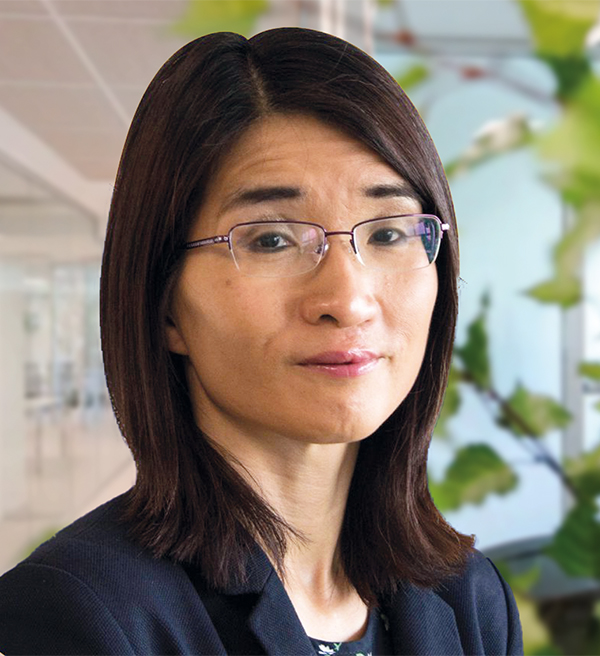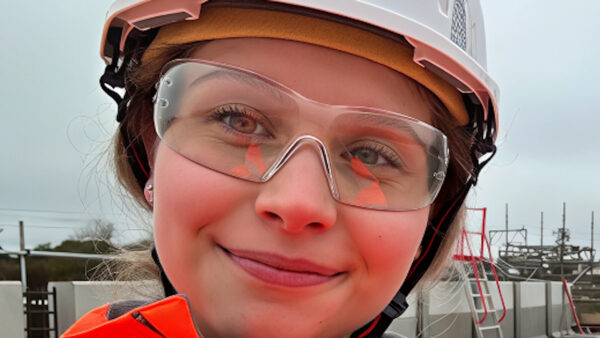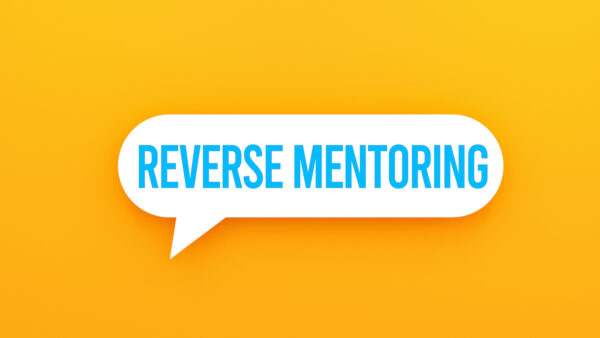
Dr Joanna Poon FCIOB, associate professor and head of discipline, built environment, at the University of Derby, is working in the vanguard of sustainability and is passionate about embedding that into teaching
What are you working on at present?
Internally, I conduct an overall review of the courses within the discipline I lead to ensure they comprehensively and systematically incorporate UN Sustainable Development Goals (SDGs) and inclusivity and diversity within the curriculum. It is the further stage of my previous work on mapping SDGs within the curriculum of all undergraduate and postgraduate courses within the portfolio.
I also bring in my expertise of leading equality, diversity and inclusivity (EDI) and accessibility as part of my role as chair for the Quality Assurance Agency (QAA) Subject Benchmark Statement (SBS) for Land, Construction, Real Estate and Surveying (LCRES).

Externally, I am at the final stage of finalising the QAA SBS for LCRES after extensive public consultations. The final version of SBS will be issued in April 2024.
I am working on selecting reviewers to papers for a special issue of the International Journal of Sustainability in Higher Education, published by Emerald, focusing on assessing the incorporation of UN SDGs in teaching and learning policies of higher education institutions, of which I am editor in chief. This issue is scheduled to be published in summer 2024.
Why is it important to the construction industry now?
Buildings generate nearly 40% of annual global greenhouse gas emissions. As an educator, it is important to enhance students’ awareness during their study to guide the future generation of built environment professionals to continue engagement with the sustainability agenda. It can be achieved through embedding sustainability within the curriculum and engaging with research to produce forefront knowledge.
EDI is important in construction as there is a stereotype as a male-dominant industry. Encouraging inclusivity and diversity is a useful strategy to address the skills gap. Construction professionals have a significant role in addressing EDI as we have a key part to play to ensure premises are addressing requirements of the Equality Act 2010.
Are you working with any construction companies so they can apply your research/innovation on their projects?
Currently, I am working with an industrial partner to develop new flood-resistance products which require no intervention to be effective against flood water. The products must meet the requirements of BS 851188:2019+A1:2021 and be tested and certified accordingly.
Property flood resilience (PFR) is the design and installation of modifications to a building’s structure to lower the flood risk, reduce damage and speed up recoverability after flooding.
What advice would you give to a built environment professional who wants to explore opportunities in education alongside their work?
I strongly encourage built environment professionals to teach alongside their industrial role.
Being an educator is an ultimately rewarding experience. It contributes to the development of the future generation of built environment professionals. It also shapes the future of the industry. We welcome practitioners to bring in contemporary practical experience to enhance our students’ practical knowledge.
My advice to colleagues interested in exploring opportunities in teaching is to possibly start with giving guest lectures or part-time teaching. Being a practitioner and educator, you can experience the best of both worlds.
How important is it to bring industry experience to the classroom?
CV: Dr Joanna Poon
2016 to present Associate professor in built environment and head of discipline – Built Environment, University of Derby, November
2015-16 Head of property and real estate, School of the Built Environment, University of Salford
2014-16 Honorary fellow, School of Management and Marketing, Faculty of Business and Law, Deakin University Australia. Also honorary lecturer for Laureate, USA, adjunct professor at Robert Kennedy College, Switzerland, and work in Hong Kong and Northern Ireland
2014-15 Senior lecturer, Department of the Natural and Built Environment, Sheffield Hallam University
2012-14 Senior lecturer, School of Management and Marketing, Faculty of Business and Law, Deakin University
2008-12 Senior lecturer, School of Architecture, Design and the Built Environment, Nottingham Trent University
Project manager for UK blue-chip company
It is ultimately important. Built environment is a vocational subject and it is vital for our students to have industry experience. It enhances their employability and supports them in being work-ready graduates.
There is increasing recognition of the importance of technical qualification in the recent years. Apprenticeships have now become a mainstream of education programme and the other Higher Technical Qualifications have also been implemented for several years.
How wide is the gap between academic research and industrial application? And how important is it to maintain links between academia and professional practice? How can we meet these challenges?
The gap between academic research and industrial application is getting narrower. There has been wider recognition of the importance of close collaboration between academic research and industrial application. Academics generate new knowledge and ideas. Industry applies the new technology and know-how into practice.
An effective approach to enhance industry and academic cooperation is through collaboration. There are funding schemes such as KTP (knowledge transfer partnerships) which facilitate the incubation of academic research ideas into industrial practice.
How do you think becoming an educator has helped in your career?
It is rewarding on personal and professional levels. I always wanted to be an educator as I believe it is important to develop the future generation of construction professions. As an educator, it brings me the opportunity to work in different countries and widen my horizon.
Comments
Comments are closed.









60% of engineers projects fail. Initially not due to tech-issues, but instead due to their lack of education “How to play nice with others.” Yet Engineering Educators continue fueling the tech-frenzy. So now with AI projects may fail faster! Cheers, Bill